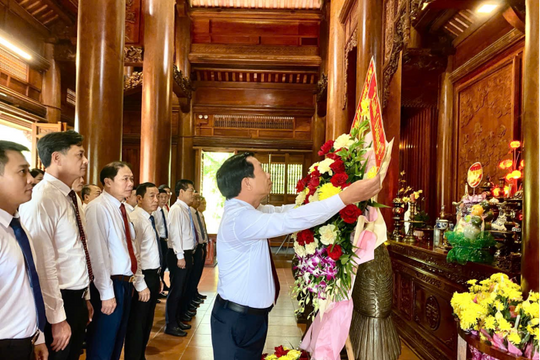'Lifetime tenure' is only applied in 3 cases
Abolish lifelong tenure so that truly capable officials and civil servants can contribute and be paid according to the value of their labor. The “lifetime tenure system” is only applied in 3 cases.
The National Assembly has officially passed the Law amending and supplementing a number of articles of the Law on Cadres, Civil Servants and the Law on Public Employees. The notable point is that there will no longer be lifelong civil servants as we have long applied.
This regulation was introduced with the hope of correcting the situation of inertia and laziness in innovation and improving the quality of civil servants by paying salaries according to job position, eliminating the idea that entering a state agency means "warm feet" until old age.
 |
| Illustration: Phu Huong |
For a long time now, we have often talked about a cumbersome and inefficient administrative apparatus that makes the state budget's ability to pay increasingly difficult. Why is that? For a long time, we have been carrying out the process of streamlining the payroll, but the result is "the more streamlined, the more bloated the apparatus becomes" because many people still only care about personal interests and group interests without caring about the big picture.
They try to recruit and put into the system weak human resources, without professional qualifications. When entering the State apparatus, many of them rely on their power and influence, in the process of carrying out their duties, always causing difficulties and obstacles for the people and businesses, making the image of officials and civil servants increasingly ugly.
Not to mention, many officials have been recruited for decades but are very sluggish, lazy, only know how to demand benefits, sometimes even oppose and hinder development. They are the cornerstones that need to be removed from the system to unblock the flow of work.
Abolishing the lifelong tenure is a regulation that is considered necessary at this time. Because economic resources do not allow us to pull a train that is too long. It is easy to see that every time the salary is increased, it is a headache for managers and it is like "a drop in the ocean". But who dares to take a knife to cut their own legs when many officials are the children of high-ranking officials but cannot do the job?
Many people hope that the regulation of abolishing the lifelong tenure system will also be applied to civil servants, especially to leading civil servants. In order for truly talented people to be managers, leadership positions in administrative units and public service units must be recruited through public examinations, not appointed as they are now. If civil servants cannot do their jobs, they must retire, they cannot just be promoted without being demoted, and if they are promoted and cannot do their jobs, they will be reassigned.
From now until July 1, 2020, there is still a long period of time for some individuals and units to take advantage of the accelerated recruitment to "avoid" regulations in order to enjoy the lifelong civil servant regime. To avoid this situation, individuals and units assigned to the task must strengthen inspection, supervision, and carry out public and transparent recruitment work.
Abolishing the lifelong tenure system, paying salaries based on position and quality of work... is expected to encourage people to work effectively and retain talented people. This new way of doing things makes those with real ability happy, and is an opportunity to remove the weak and opportunistic from the system. And only then can we hope that the public administration system will be effectively reformed, and the socio-economic environment will truly be created for businesses and people to develop.
According to the newly passed Law on Civil Servants, two types of employment contracts remain: indefinite term and definite term.
However, indefinite-term contracts or “lifetime tenure” are only applicable in the following three cases:
- Officials recruited before July 1, 2020;
- Cadres and civil servants converted into public employees;
- People recruited as civil servants working in areas with especially difficult socio-economic conditions.
At the same time, for newly recruited officials from July 1, 2020, they must sign a fixed-term employment contract with a period of 12 to 60 months.




.jpg)




